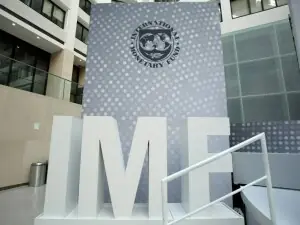The implementation of "vehicle monitoring and interception system" (VMIS), developed by National Database Registration Authority (Nadra) in the province, is likely to force insurance companies to slash car insurance premium by up to 50 percent.
The system, which would be implemented over the next three months, was destined to minimise vehicle-related crimes in Sindh, the source said, adding that in the initial phase, the system would be installed in Karachi followed by Hyderabad soon after. The Sindh government will thus become the first provincial government to introduce and implement the high-tech state of the art VMIS.
The implementation and successful trials would force the insurance companies to slash car insurance premium by up to 50 percent for which an assurance has been given to the Federal government by some companies, according to a source in the Ministry of Interior.
The source said the government's plan to launch a system for curbing vehicle thievery would create a fierce competition between existing vehicle tracking companies to retain their existing clientele.
According to the source, Nadra system would hardly cost a few hundred rupees as compared to thousands of rupees being charged by tracking companies.
The insurance companies are already offering discount on premiums if the vehicle insured, is carrying a tracking device, but according to the source, the existing systems were very expensive and mostly out of reach of common citizens.
The project was previously named "Vehicle Identification and Tracking System" (VITS), but later its name was changed to "Vehicle Monitoring and Interception System" (VMIS), which is a ground-based tracking system.
VITS, a project designed and conceived by Nadra engineers, is a ground base tracking system, which will not only help the law-enforcement authorities to track vehicles' movement, but would also control and manage traffic during peak hours and in cases of emergency. The source said the project's viability would depend entirely on public participation, while the government expected maximum from the public, which bear high expenses on their vehicles' security otherwise.
The Sindh government will soon be implementing VMIS, enabling the law-enforcement authorities to check vehicle thefts in the province and other crimes committed through those snatched or stolen vehicles.
Sindh Chief Minister Dr Arbab Ghulam Rahim has already approved the project and instructed the departments concerned for immediate launching of the same to achieve the required results.
It was also decided that both the Sindh police and Rangers would be involved in the implementation and functioning of the system. The system in question, besides extirpating vehicle-related crimes, would also help the city administration to regulate and manage traffic flow during peak hours and particularly in an emergency situation.
According to an official source, the Sindh government has taken the decision to improve the law and order situation in the province. The recent bomb blasts in Karachi prompted the provincial government to take such measures as in both the US consulate and PIDC blasts, stolen vehicles were used which could have been easily detected and intercepted by the VMIS much earlier. The system provides not only the current location of a vehicle, but also its trail going back to several days as per the requirement of the law enforcers.
Initially, a computerised chip will be issued from 20 points to vehicle owners in the city and each of these outlets will have the capacity of registering approximately 1,000 vehicles a day. The number of vehicles in the city is estimated to be 1.2 million. It has been calculated that all vehicles existing in the province could be registered within four to five months. It would be mandatory for every vehicle owner to get a chip for his/her vehicle.
To obtain the chip, documents proving the identity of the owner of the vehicle, including Computerised National Identity Card (CNIC) or vehicle documents in his/her name would be required, whereas no chip will be issued to any vehicles with open letters.
All check posts at major bridges and entry/exit points of towns would be equipped with trans-receivers and antennas to monitor the movement of every vehicle and go through its data. Any car without a chip will be instantly identified by the system.
The project will be implemented in the metropolis over the next three months. It would be initially introduced in Karachi and extended to the entire province gradually. In the first phase, 19 check posts would be established, 10 of them fixed and the rest mobile ones. Three control centres would also be established to check and monitor movement of vehicles. The new system is liable to promote and conduct technical and statistical studies with the help of National Data Warehouse (NDW) about the causes of traffic accidents, vehicle thefts, traffic violations and other law concerning matters for the purpose of developing ways and means for the prevention of such incidents.
The system will help in conducting traffic and transport studies that could come in handy for the development of traffic control standards, through the introduction of Radio Frequency Identification Chip (RFID) systems and NDW.
BR100
16,405
Increased By
92.5 (0.57%)
BR30
52,938
Increased By
579.1 (1.11%)
KSE100
158,781
Increased By
743.5 (0.47%)
KSE30
48,500
Increased By
249 (0.52%)





















Comments
Comments are closed.